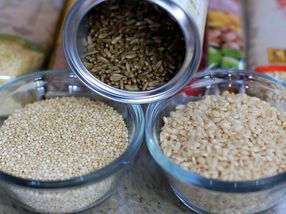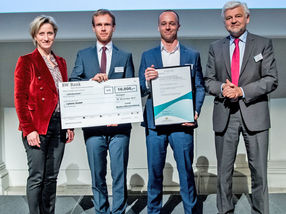EuropaBio welcomes the European Commission’s initiative to develop a Resource Efficiency Roadmap for Europe
EuropaBio recalls the vital role played by biotechnology and calls for strong EU commitment to realise the full potential of a bio-based economy
Europe needs more tangible and sound policies on resource efficiency in the short and medium term to meet its objective of becoming a smart, sustainable and inclusive economy. The launch of the European Commission’s Roadmap for Resource Efficiency represents a step towards this goal.
However, to deliver on the ambitious aims outlined in the roadmap, the EU must take the huge potential of biotechnology into account. Biotechnology already helps Europe and the world deal with resource scarcity by enabling more efficient and less energy intensive ways of production in various sectors of the economy including agriculture, renewable energy and industrial sectors, bringing environmental, economic and societal benefits.
The key message of the Commissions publication is that in order for Europe to remain economically competitive, become greener and meet the needs of an ever growing population, it is essential that all stakeholders agree to define appropriate targets on resource efficiency by 2013. The report is designed to ‘transform the economy’ and get one step closer to fulfilling the promise set out in the EU 2020 strategy of moving to a more resource efficient, environmentally friendly and competitive economy.
When launching the publication, Environment Commissioner Janez Potočnik said: "Green growth is the only sustainable future – for Europe and the world. Industry and environment need to work hand in hand – in the long term our interests are the same."
To meet the Roadmap’s aims of using less land while using fewer natural resources, resource efficiency in agriculture will be critical. The Roadmap for Resource Efficiency proposes the development of a European Innovation Partnership on agricultural productivity and sustainability to improve soil fertility by 2015. Together with curbing food waste, agricultural biotechnology can help increase agricultural productivity while also reducing production impact on soil and water, crucial facts that Europe must not overlook.
Nathalie Moll, Secretary General of EuropaBio stated: “Europe’s demand for resources is no longer sustainable. The EU requires a fundamental shift towards smarter and more sustainable products, processes, energy and agriculture. Europe has scientific excellence in abundance and a formidable track record in research and development. As an industry, we are encouraged by the leadership shown by the European Commission to develop a truly innovation-focused research policy for the future. What we need now is investment to scale up the results of EU research to deliver jobs and economic and environmental benefits in Europe and to fully realise our worldwide market potential. Part of this is taking into account biotechnology’s contribution to increasing resource efficiency as the European Commission prepares its targets by 2013 to harness its vast potential.”
If Europe is serious about delivering on its 2020 promises, a more holistic and strategic approach to supportive policy-making and investment in biotech is required. EuropaBio calls on the Commission and member states to ensure that this roadmap strengthens the fundamental links between resource efficiency and a competitive, world leading innovative EU economy.
Most read news
Other news from the department politics & laws

Get the life science industry in your inbox
From now on, don't miss a thing: Our newsletter for biotechnology, pharma and life sciences brings you up to date every Tuesday and Thursday. The latest industry news, product highlights and innovations - compact and easy to understand in your inbox. Researched by us so you don't have to.




















































